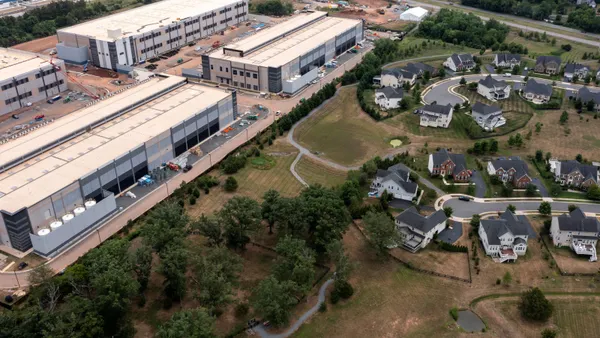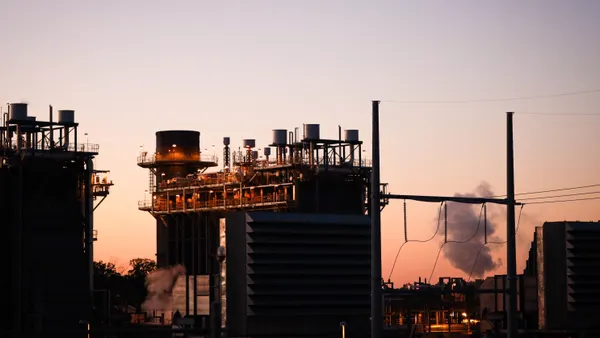Dive Brief:
- The Federal Energy Regulatory Commission on Friday issued a 3-2 decision to restrict the consideration of climate change impacts in its environmental assessments for new natural gas pipeline projects.
- The all-Republican majority wrote FERC will now only consider greenhouse gas emissions associated with a specific proposed pipeline, rather than a broader approach it had taken to consider a project's impact on production and consumption of natural gas since a federal court ruling on a Florida project.
- Democratic commissioners argued FERC is obligated to consider the impact new pipelines will have on upstream production and downstream consumption of gas, and the agency does not currently ask for sufficient information on the issue. The ruling is likely to be challenged by environmental groups in court.
Dive Insight:
FERC's ruling on GHG accounting could set a precedent for how it evaluates pipelines, but only if it survives what is likely to be a high-profile legal battle in the sector.
In the ruling, the majority wrote FERC would no longer prepare "upper-bound" estimates of GHG emissions that would result from changes in gas production and consumption when new pipeline capacity is brought online.
Such information is "speculative," they wrote, and "muddles" project analysis under the National Environmental Policy Act (NEPA).
For a time, the majority noted, FERC had gone beyond that standard, also assessing impacts on production and consumption. That analysis was prompted by a Dec. 2017 D.C. Circuit ruling directing FERC to more completely assess climate change impacts of the Sabal Trail pipeline in Florida.
FERC responded to the ruling by nominally accounting for GHG impacts, but argued such measurements are too imprecise to be significant.
"That information was generic in nature and inherently speculative," the majority wrote in the Friday ruling, "providing upper-bound estimates of upstream and downstream effects using general shale gas well information and worst-case scenarios of peak use."
The ruling doubles down on that interpretation, arguing that such information falls outside FERC's environmental review obligations under NEPA.
"[W]e will no longer prepare upper-bound estimates .... where, as here, the upstream production and downstream use of natural gas are not cumulative or indirect impacts of the proposed pipeline project," the majority wrote.
In their dissents, Commissioners Cheryl LaFleur and Richard Glick argued the emissions that result from upstream and downstream gas consumption are, in fact, cumulative or indirect impacts of a new project, necessitating FERC review.
"[G]iven Sabal Trail’s finding that downstream GHGs in that case were indirect impacts, the Commission must now quantify and consider those impacts as part of its NEPA review," LaFleur wrote. "More broadly, pipelines are driving the throughput of natural gas, connecting increased upstream resources to downstream consumption."
FERC may not be able to provide sufficient climate analyses for all projects, but the agency currently "has not seriously attempted to gather that information in the first place," Glick wrote.
"[T]here may be instances in which it will not have sufficient information to assess the consequences that issuing a particular certificate may have for climate change," he wrote. "But, in that scenario, it is the fact that the Commission made every effort to identify the climate-change impacts that satisfies the Commission’s obligation to consider those impacts as indirect or cumulative effects under NEPA."
The new climate accounting policy was issued as part of an order denying rehearing on Dominion Transmission's New Market Project in New York. It also comes during FERC's first review of its pipeline approval policies since the 1990s — something LaFleur targeted in a Friday post on Twitter:
"I believe today's decision is incorrect as a matter of law and policy and unwise in view of our recently announced generic review of the pipeline certificate process," she wrote.













